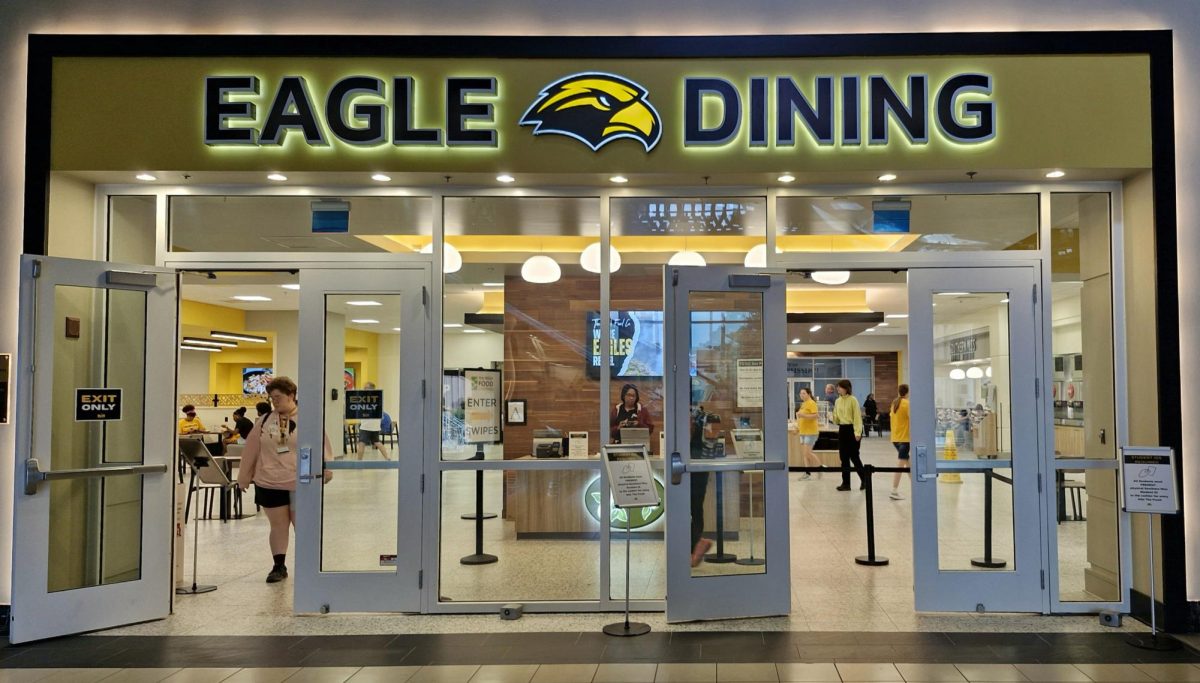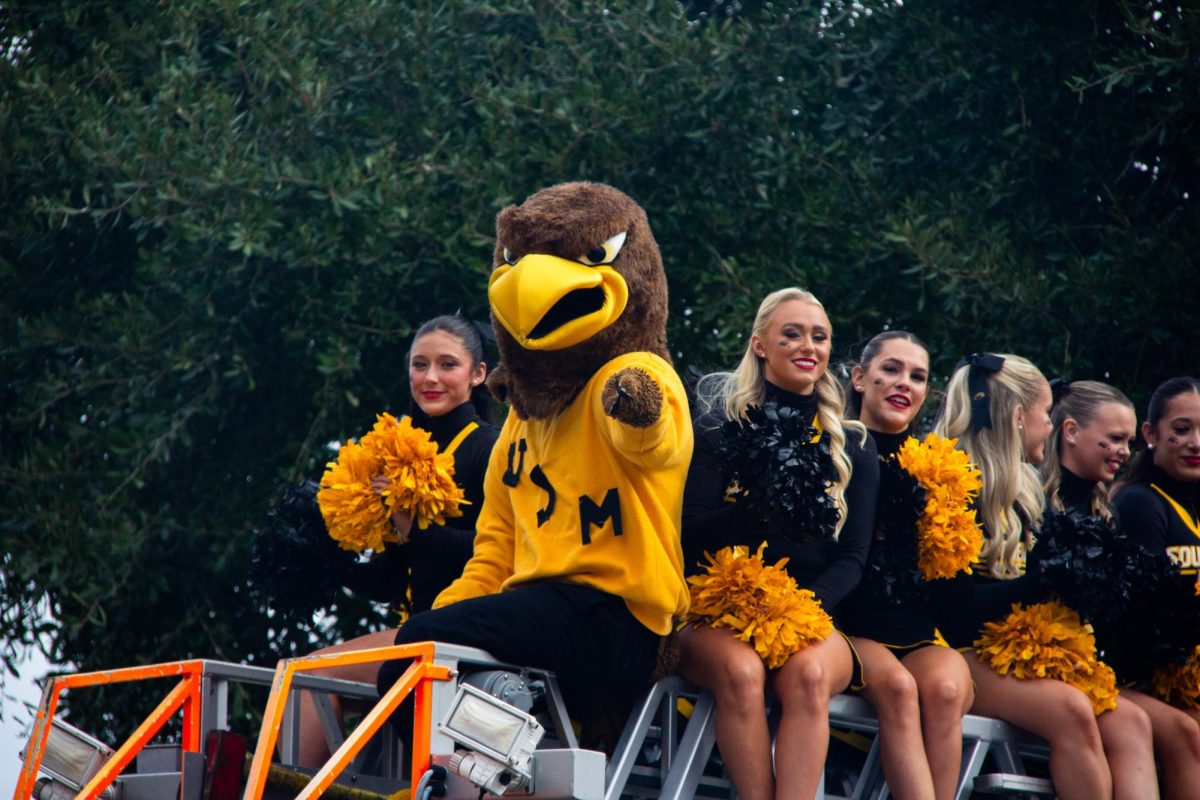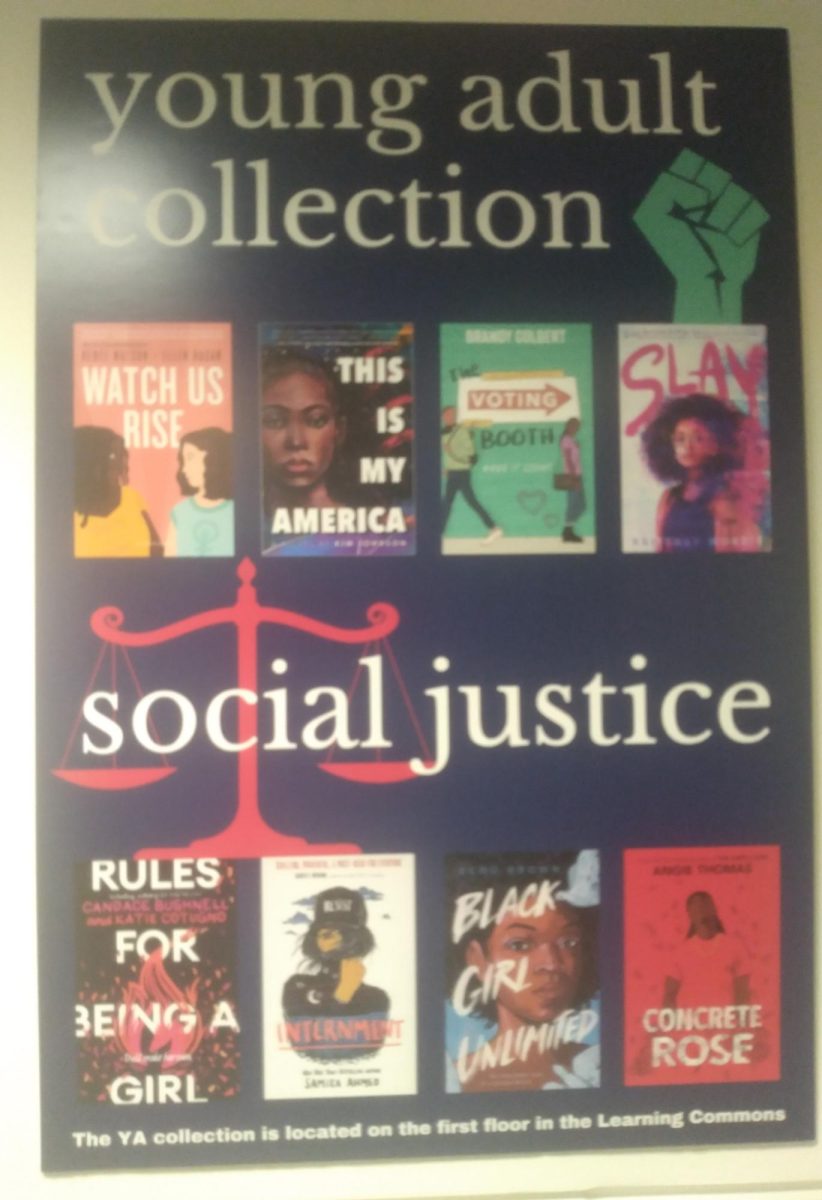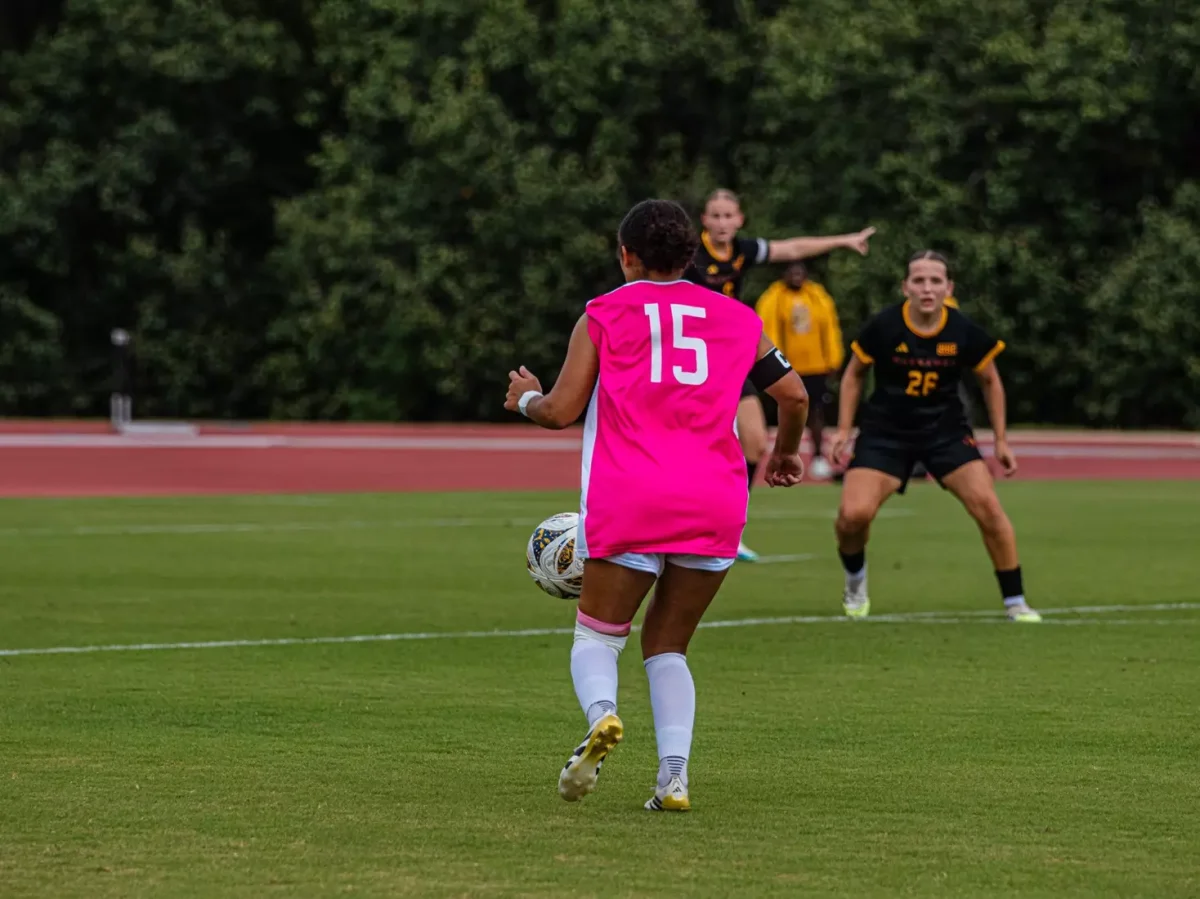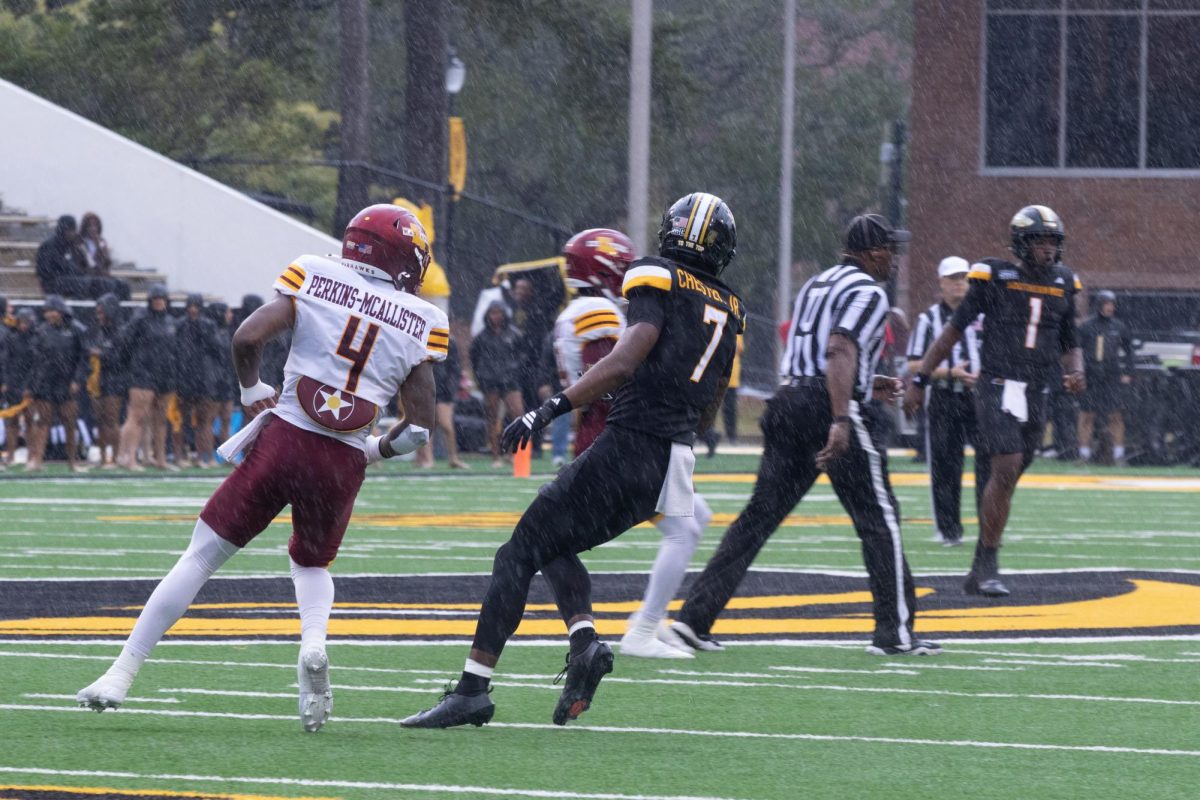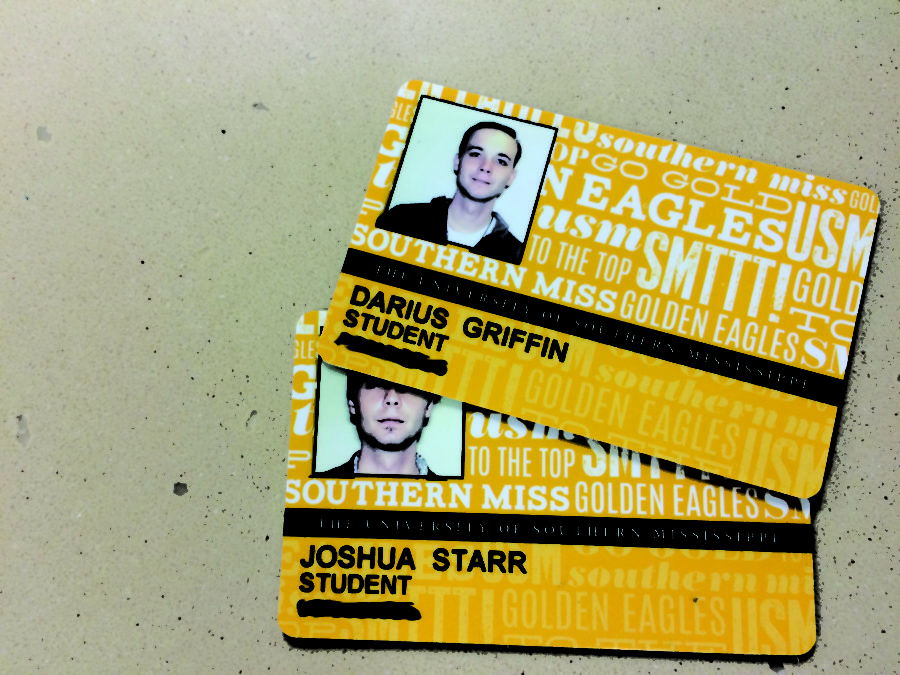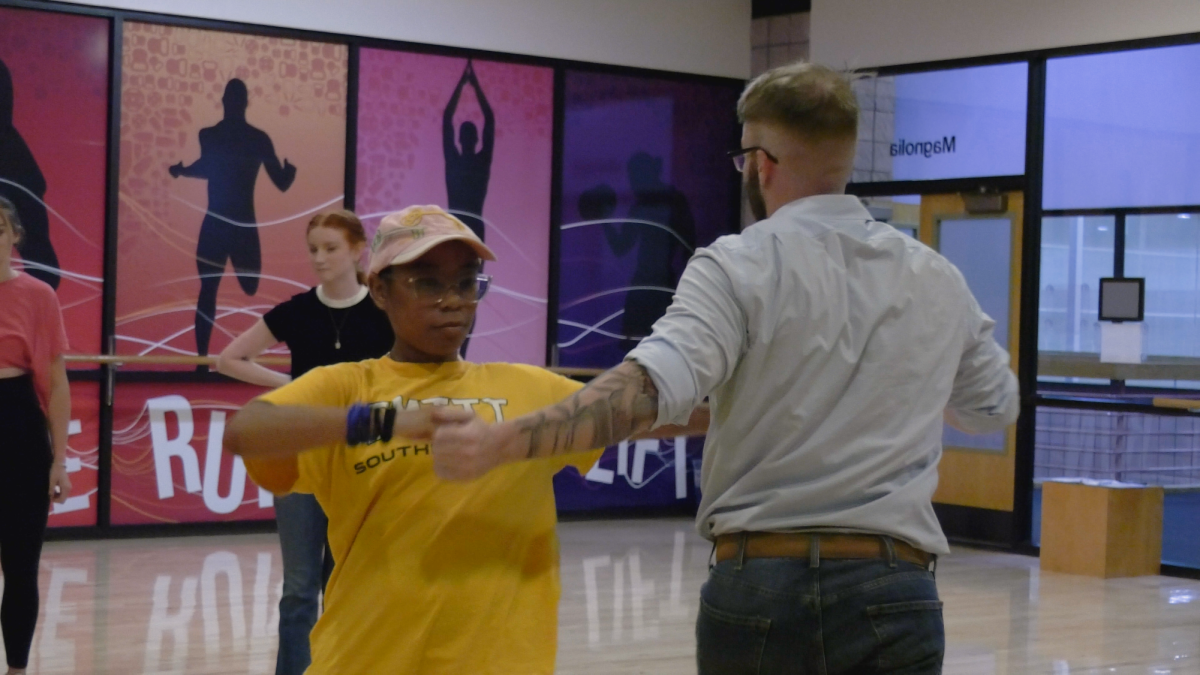As USM freshman Darius Griffin discovered during the course of a Student Printz investigation, a current USM policy has left new University of Southern Mississippi students on the Hattiesburg campus vulnerable to identity theft.
Griffin, a transfer criminal justice major from Jackson State, allowed The Printz to use his identity to test this policy during the university’s Jan. 14 orientation session. Requiring only Griffin’s student number printed on a card, Printz News Editor Joshua D Starr acquired Griffin’s identity in less than two minutes without saying a word.
“I don’t want anybody to just come and take my identity,” Griffin said. “You can — you just did. You can use it anywhere for jobs as an ID. People can use that to do bad stuff with my name, and I wouldn’t like that.”
Griffin said he was awed by how easily his identity could be stolen.
“It took like a minute if not less,” he said. “I was definitely surprised, shocked really. It seemed crazy to me that you could actually do that.”
Student IDs serve a variety of purposes on and off campus in the state of Mississippi. On campus, students can use their identification cards for everything from purchasing meals to receiving medical care. Off campus, student IDs are accepted on I-9s as valid forms of identification for employment.
With the exception of USM’s Hattiesburg campus and the Mississippi University for Women, every public university in the state of Mississippi follows protocols to confirm the identities of individuals issued IDs.
Most of these universities require students to provide government-issued IDs before being issued student IDs. Others confirm students’ identities with internal information, such as Mississippi State, which requires a student provide a unique orientation number issued to that student and corroborates that identity by asking for personal information already held in its system.
University of Mississippi ID Center supervisor Kathy Tidwell said UM has a number of measures in place to protect student identities. Typically, UM ID services require students mail a copy of their state-issued IDs or bring or bring the originals to the ID Center order to receive IDs. However, if students fail to bring their IDs to orientation, they can be verbally tested by staff on detailed personal information kept in the department’s records.
“I think it’s important that a person not be carrying around a card with a picture on it that is not them” Tidwell said.
Since Mississippi’s voter ID law was implemented, student IDs from accredited public universities and community and junior colleges can be used as identification to vote.
Mississippi Secretary of State Delbert Hosemann said when they were developing regulations for acceptable IDs, staffers from his office contacted the state’s various universities to ensure they had acceptable policies in place.
“In the end of all that, we were satisfied that their issuance satisfied all the necessary requirements for voter ID,” Hosemann said.
Tidwell said she remembers being contacted by the Secretary of State’s office.
“They had called us a couple of years ago and asked similar questions to what [the Printz is] asking,” she said.
Jacob Cochran, USM’s associate director of procurement and contract services over photo services, said he does not recall being contacted. He said his department learned of the USM policy loophole as a result of the Printz investigation.
“We weren’t really aware that a student could come get their ID number [and ID] without showing their actual driver’s license at any point during the orientation process,” he said.
Cochran said requiring only a student ID number for first ID issuance has been a longstanding policy at the university.
“[Photo services has] functioned pretty much the same dynamic for as long as I can remember,” he said. “I don’t know how long that department’s even been here.”
Cochran said his department is working with the university administration and the university police department to develop policy that would require students to provide state-issued IDs before receiving their student IDs.
“It will actually be implemented [in] the upcoming orientation sessions starting with the presidential scholars this spring,” Cochran said.
Last week, this policy had yet to be drafted.
According to Griffin, UPD’s response to the issue was more immediate. After receiving his legitimate student ID, Griffin was still on campus for orientation when UPD called him to meet. He said his experience with UPD made him hesitant to be interviewed.
“They found my name and number in the system, they called me and told me to come down and they told me to make a statement and then not to do it again,” he said.
Griffin said during this meeting, UPD told him not to talk to the press.
“They told me not to talk to [The Printz] because you shouldn’t have went about it that way — that’s what they said,” Griffin said.
Despite multiple attempts this semester to contact UPD Police Chief Bob Hopkins, he could not be reached for comment.
Griffin said he thinks the university’s plan to change the policy is a good one.
“They should have already had that,” he said.
Cochran said he plans to communicate with the USM Gulf Park campus on the new policy.
“I don’t really have oversight over them,” he said. “They’ve kind of taken over their own photo ID department, but they should mirror what we do here.”
USM events specialist Eunice Scott, who heads ID services on the Gulf Park campus, said since photo services was moved to her department, providing a government-issued ID has been a requisite for being issued a student ID.
“That’s how we’ve always done it, and I think we’ve been doing it now probably eight or nine years,” she said.
Scott said the reason for this policy is simple.
“It could be someone else,” she said. “You want to make sure that it’s the person that it really is.”



